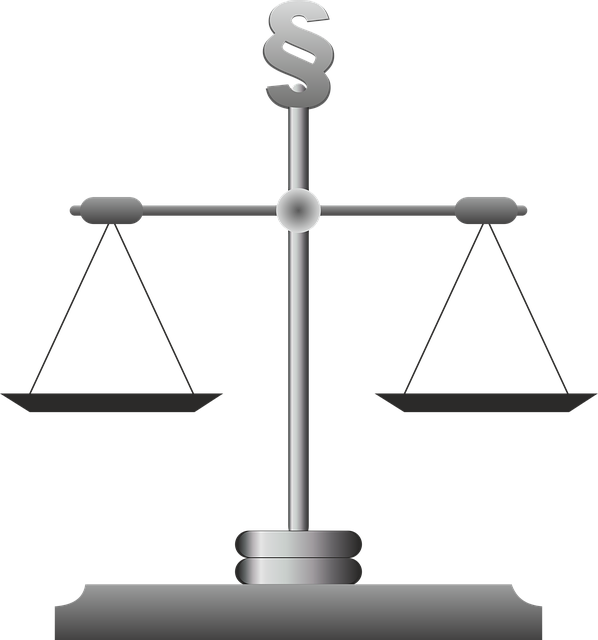Antitrust laws adapt to digital era with focus on data sharing, algorithms, and platform dominance. Enforcement targets abuse of market power, price fixing, and exclusive dealing. High-profile cases against tech giants like Google, Apple, Amazon, and Facebook drive stricter global regulations. Proactive compliance, training, and internal audits are crucial for businesses to avoid high-stakes antitrust violations.
In the dynamic landscape of the digital era, antitrust enforcement trends in digital markets have emerged as a crucial aspect of global economic governance. As tech giants dominate online spaces, understanding antitrust laws and their application becomes vital for businesses seeking to navigate these complex regulatory waters. This article explores common forms of market dominance abuse, high-profile cases involving tech giants, global regulatory responses, and essential preventive measures for businesses aiming to stay compliant with evolving antitrust enforcement trends.
- Understanding Antitrust Laws in Digital Era
- Common Forms of Market Dominance Abuse
- High-Profile Cases: Tech Giants Under Scrutiny
- Regulatory Trends: Global Response to Violations
- Preventive Measures for Businesses: Staying Compliant
Understanding Antitrust Laws in Digital Era

In the digital era, antitrust laws play a pivotal role in regulating markets and ensuring fair competition. These laws are designed to prevent businesses from engaging in anti-competitive practices that could harm consumers and stifle innovation. The rise of digital markets has brought unique challenges, prompting regulators to adapt and focus on emerging trends such as data sharing, algorithms, and platform dominance. Understanding these evolving dynamics is crucial for both businesses and legal professionals navigating the complex landscape of antitrust enforcement in digital markets.
Antitrust enforcement trends in digital markets have seen a shift towards examining how companies use data and algorithms to gain competitive advantages. Cases often involve allegations of abusing market power, fixing prices, or engaging in exclusive dealing agreements. A successful defense strategy requires a thorough understanding of these laws and the ability to demonstrate that business practices are not anti-competitive. For his clients, achieving a complete dismissal of all charges is a testament to an effective challenging defense verdict, showcasing the importance of expertise in this evolving legal domain.
Common Forms of Market Dominance Abuse

In the dynamic landscape of digital markets, antitrust enforcement trends have evolved significantly. One prominent area of concern is market dominance abuse, where powerful companies employ various strategies to stifle competition and maintain their dominant positions. Common forms include price fixing, where businesses collude to set artificial prices, and exclusive dealing agreements that limit retailers’ ability to source products from competitors.
These practices often result in reduced consumer choice and higher prices across the country. Antitrust authorities are increasingly scrutinizing digital platforms for such abuses, given their vast market power and influence over user behavior. By navigating all stages of the investigative and enforcement process, these bodies aim to hold companies accountable, promote fair competition, and ultimately protect consumers from anti-competitive behaviors in the digital realm.
High-Profile Cases: Tech Giants Under Scrutiny

In recent years, antitrust enforcement trends in digital markets have shifted focus to high-profile cases involving tech giants. These investigations often revolve around allegations of anti-competitive practices, market manipulation, and the abuse of dominant positions. Companies like Google, Apple, Amazon, and Facebook have faced intense scrutiny from regulatory bodies worldwide, leading to significant legal consequences. For instance, in 2019, the European Commission imposed a record fine on Google for abusing its market power in search advertising, marking a landmark decision in white collar and economic crimes enforcement.
The attention on tech giants reflects a broader trend where antitrust authorities are increasingly targeting large, digital companies for alleged misconduct. While some cases have resulted in settlements and reduced penalties, others have led to complete dismissal of all charges, depending on the merits of each respective business’s defense. These high-profile investigations send strong signals about the importance of maintaining fair competition in the digital economy and the potential consequences of antitrust violations.
Regulatory Trends: Global Response to Violations

The global response to antitrust violations has seen significant regulatory trends emerge, particularly within digital markets. As technology continues to evolve at a rapid pace, so does the need for robust antitrust enforcement to maintain fair competition and protect consumers. In recent years, there has been a notable shift towards more stringent regulations, with countries worldwide adopting stricter measures to combat anti-competitive practices in the digital realm. This heightened focus is driven by the unique challenges posed by digital markets, such as data sharing, algorithmic decision-making, and platform dominance.
The rise of digital giants has prompted regulatory bodies to adapt their approaches, leading to more proactive investigations and enhanced penalties for violations. Many jurisdictions are now implementing laws specifically tailored to address antitrust concerns in tech industries, ensuring that corporate and individual clients involved in white-collar defense are held accountable for anti-competitive behavior. This global response reflects a growing recognition of the interconnectedness of digital economies and the need for harmonized standards to effectively tackle antitrust enforcement trends.
Preventive Measures for Businesses: Staying Compliant

Staying compliant with antitrust laws is paramount for businesses, especially as antitrust enforcement trends in digital markets continue to evolve. Companies must be proactive in their approach to avoid high-stakes cases and the significant financial and reputational risks associated with violations. Regular internal audits and training sessions on competition policy can help ensure that employees understand their roles in maintaining a fair market environment.
Beyond these measures, businesses should foster a culture of ethical conduct and transparency. Encouraging open communication across departments can help identify potential issues early on. Staying abreast of antitrust enforcement trends across the country is also crucial, as what constitutes a violation may vary from one jurisdiction to another. Achieving extraordinary results in compliance requires a commitment to continuous learning and adaptation to these dynamic legal landscapes.
The digital era has brought about unique challenges in antitrust enforcement, with tech giants and their market dominance coming under increasing global scrutiny. As these trends continue to evolve, businesses must stay informed and proactive to avoid potential violations. By understanding the common forms of market abuse, keeping up with regulatory changes worldwide, and implementing robust compliance strategies, companies can ensure they navigate the digital landscape ethically and in line with antitrust laws. This proactive approach is key to fostering fair competition and maintaining a healthy digital marketplace.






